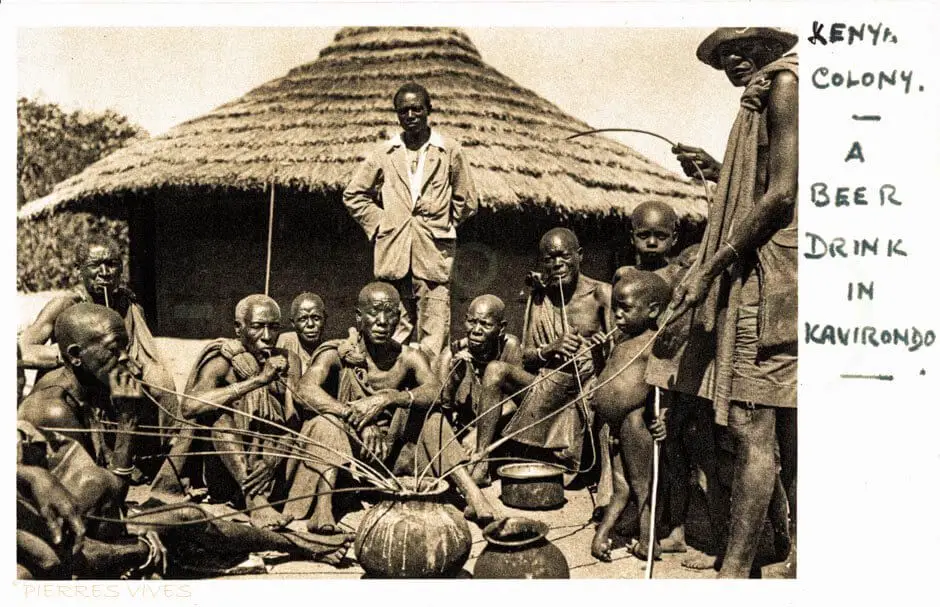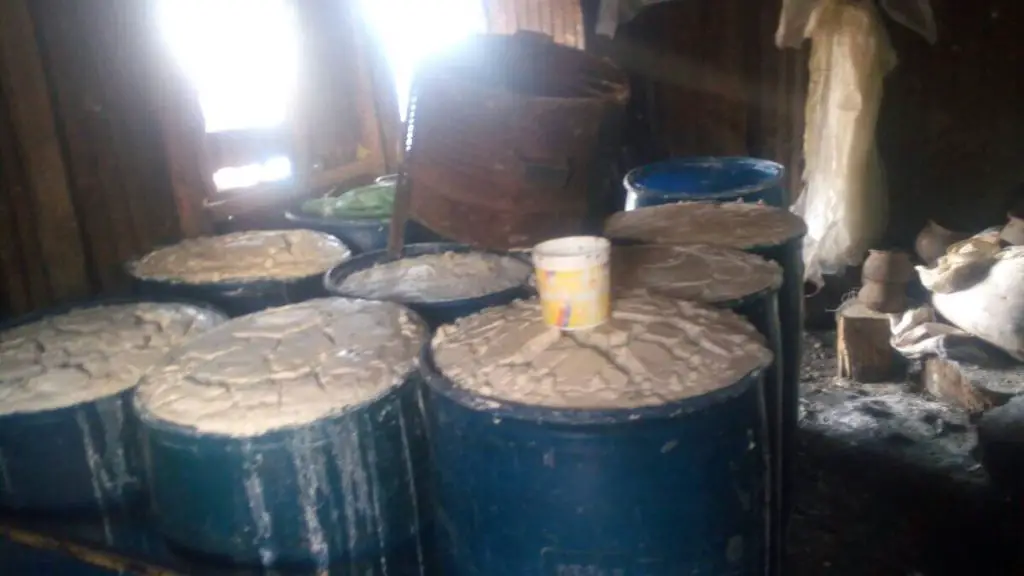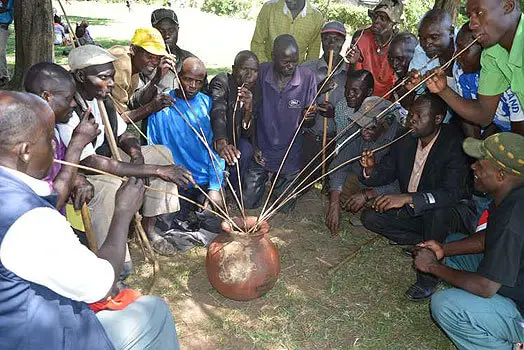Busaa is a traditional brew made from maize, millet, sorghum, or cassava that is consumed during social events.
This brew is popular because it contains nutrients vital to fighting diseases.
This Kenyan traditional brew has a low alcohol concentration, about 4%, unlike other alcoholic drinks that contain high alcohol concentrations.
Additionally, it is loved for its thick porridge, distinct sour aroma, and unique taste that enhance the drinking experience.
The History and Culture of Busaa

The origins of Busaa date back to the early days of Kenyan civilization, when local people brewed alcoholic beverages using available grains.
It is a staple beverage consumed by many communities across the country including Western, Nyanza, Rift Valley, and Central
Just like busaa, there are other varieties of traditional beers consumed in Kenya including Mursik, Chai, The dawa, and Muratina.
Historically these brews have been a significant source of socialization for people in the community.
In the Luhya community, the brew is used as a cultural symbol that signifies community, tradition, and unity.
The drink is deeply embedded in Kenyan culture, and it plays a significant role during many ceremonies and festivals.
For instance, during weddings, busaa is served to guests as a sign of warmth, and toasting to the newlyweds.
This traditional brew is also used during initiation and male circumcision ceremonies. For example, some Luhya communities believe that it can help them to connect with their ancestors and receive blessings.
And during the end of the initiation process, it is used to signify the transition from childhood to adulthood.
Aside from its use in ceremonies, Busaa is also a popular drink in local bars and drinking joints.
Popularly consumed in groups, it is considered a social drink. It brings people together and it is often associated with laughter, storytelling, and good times enjoyment.
It is often served in a communal pot and each person uses a long straw to sip the brew.
As of right now, busaa sales are legal in Kenya.
In spite of this, many have been arrested for violating alcohol laws. According to the Alcohol Law, alcohol dealers must use the correct bottle that bears a statement of its constituents and at least two health warning messages in either English or Kiswahili.
There are a number of breweries that fail to adhere to this rule and hide the beer when processing it.
The Ingredients of Busaa
Busaa is made from a mixture of millet, sorghum, and maize. However, the choice of grains used to make Busaa may vary from different regions.
These grains are readily available in Kenyan farms as they have been part of the country’s staple diet for centuries.
The advantages of these grains are that they are rich in a variety of nutrients.
Additionally, clean water is also a crucial ingredient in brewing Busaa.
Some brewers complement it with special ingredients such as herbs and roots to enhance its flavor.
How to Brew Busaa

The process of brewing Busaa is an elaborate process that requires energy and time.
Being patient is also important to help achieve an aromatic flavor that is enjoyable.
- The process starts by soaking the grains of millet, sorghum, or maize in water for several hours to make the soft.
- Then the grains are milled to a rough texture. The resulting flour is mixed with warm water and stirred to form a thick porridge.
- The porridge is then placed in a warm place and left to ferment for several days.
- During the period the fermentation process is taking place, the natural yeasts that exist in the air and on the grains change the sugars in the porridge into alcohol.
- But the secret is that the longer the fermentation process, the higher the alcohol content of the Busaa.
- When the fermentation duration is finished, the Busaa is sieved using a clean cloth to remove the solid particles and then served fresh.
- To have stronger alcohol, it can be purified further to turn into a beverage known as Changaa, commonly nicknamed “kill me fast”.
The Health Benefits of Busaa
Busaa is not just important when it comes to cultural and socialization matters; it also has several health benefits.
The drink is rich in vitamins and minerals and is an excellent source of energy.
It is also believed to aid in digestion and therefore cure and treat stomach ailments.
Recent studies have also shown that fermented food such as Busaa, Mursik, and yogurt alter the creation of bacteria, viruses, and fungi thus helping to maintain a healthy gut and eventually prevent diseases like diarrhea.
These foods contain probiotics essential in maintaining a healthy immune system.
They also help to reduce the risk of certain diseases such as diabetes and heart disease.
Side Effects of Busaa in the Body
Even though Busaa can be beneficial health-wise, it is important to note that is an alcoholic beverage, and excessive consumption of it can lead to addiction which ultimately can cause health diseases like liver damage.
So, individuals are advised to drink it responsibly and moderately.
In another study, scientists have found that in some instances, brewers use rotten grains and have harmful toxins which consequently may lead to esophageal cancer.
Some brewers don’t use clean pots which expose consumers to higher risks of contracting illnesses.
The Economic Significance of Busaa

Busaa is also known to be a significant source of income for many Kenyans.
For instance, in rural areas, the brewing of busaa is a common source of livelihood, and many families rely on it as a primary source to earn a living.
In addition, the trade of busaa contributes significantly to the growth of the local economy.
Many local bars and drinking joints specialize in selling it to make a profit.
These businesses employ many Kenyans, and they also contribute to building the national economy by generating revenue taxes.
Closing Thoughts
Busaa is an essential part of Kenyan culture, and it continues to be brewed and enjoyed by many people.
However, the drink’s future and popularity are weak because of factors such as competition from modern breweries and strict government regulations.
Even though these challenges exist, Busaa will always remain a cultural icon.
Also check: Muratina: All About The Timeless Traditional Kikuyu Brew

